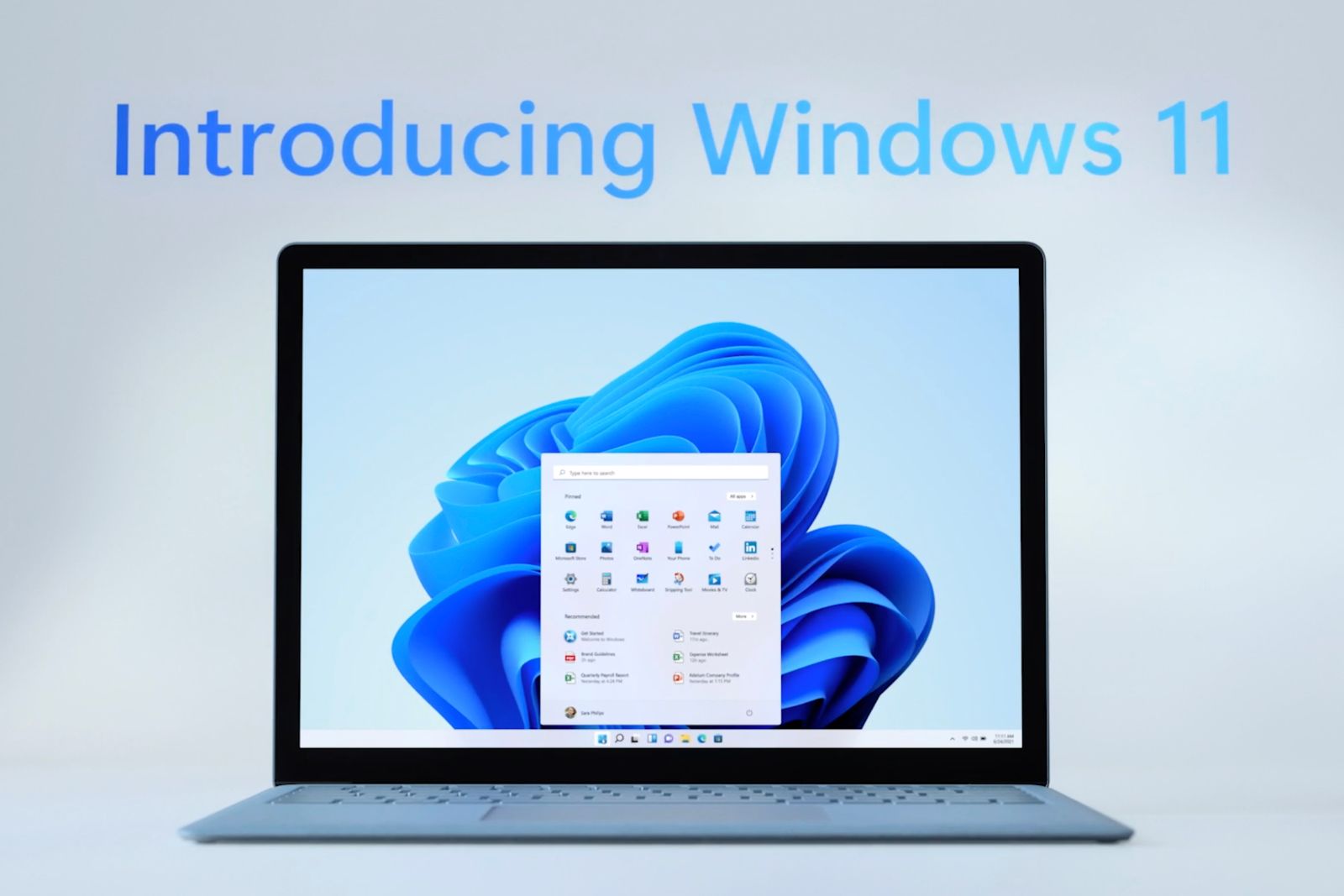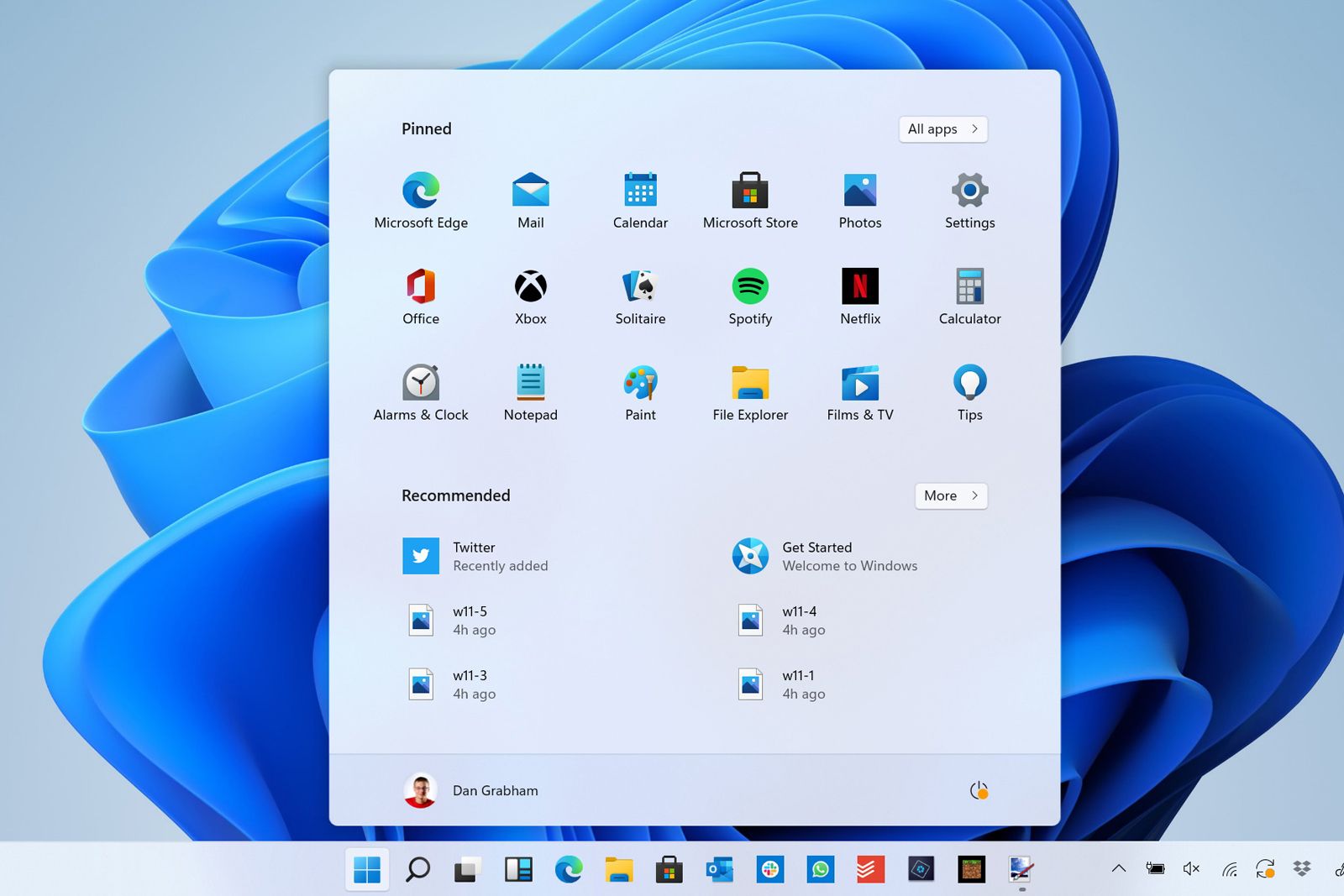Microsoft has officially revealed Windows 11 which will launch later in 2021. The new operating system - which is broadly similar to Windows 10 - has a bunch of design changes and some new features and it'll be a free upgrade.
The operating system leaked in full last week, but Microsoft says this was an incomplete version. Regardless, an early build will be coming to Windows Insiders next week.
The key design change is that the taskbar icons are now centralised (you can move them back if you want) while the Start menu has been comprehensively re-thought to be more of an app launcher and drawer for your most recently touched files. Many icons have been redesigned to drag them out of ancient PC history.
Gone are the live tiles from Windows 8 and 10, though there is a new macOS-like widgets sidebar for apps like News to show you relevant content. Expect this new sidebar - which has its own icon on the taskbar - to be a key focus for Microsoft with Windows 11 as it enables others to contribute content to this area. It's pretty big, but you can resize it.
Windows' legendary window snapping has also been given a feature bump, with easier ways to show several windows on screen at the same time. These are called Snap Groups, says Microsoft. Snap Layouts also remembers how you had things laid out, even on external displays you connect to. You can read more about Snap Layouts and Snap Groups here.
On tablets, snapped Windows change orientation if you move to portrait from landscape. Touch targets have also been made larger so it's easier to use for touch.
Microsoft says it is also redesigning the much-maligned Microsoft Store and adds that it will welcome any type of app to the store - not just 'native' store apps even if developers use their own ways of taking customer payments (a different approach to Apple).
The software giant also said that Android apps will also be able to be installed on Windows 11 via Amazon's Appstore.
Elsewhere though, the new Windows is more iterative than revolutionary, borne of Microsoft's need to keep its PC-making partners happy through the marketing of an upgraded version of the venerable operating system.
There's a risk for Microsoft though; when it has followed up a successful version of Windows this millennium (like XP or 7), it has done so with one that's less well-received like Vista or Windows 8.
The proof is in the pudding though and if you want to check out what we think of Windows 11 so far, check out our first impressions of the leaked build.


